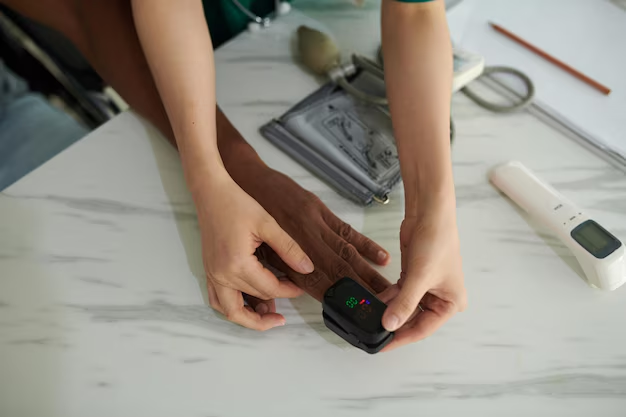Your Guide to Is Honey Good For a Diabetic
What You Get:
Free Guide
Free, helpful information about Diabetes FAQ and related Is Honey Good For a Diabetic topics.
Helpful Information
Get clear and easy-to-understand details about Is Honey Good For a Diabetic topics and resources.
Personalized Offers
Answer a few optional questions to receive offers or information related to Diabetes FAQ. The survey is optional and not required to access your free guide.
Can Diabetics Safely Enjoy Honey? Here’s What You Need to Know
For those managing diabetes, dietary choices are crucial. One question that often arises is whether honey, with its natural sweetness, is a suitable alternative to sugar for diabetics. Let’s explore how honey affects blood sugar and whether it's a beneficial option for those living with diabetes.
Honey vs. Sugar: The Sweet Truth
Honey is often considered a natural sweetener with potential health benefits such as antioxidants and anti-inflammatory properties. However, at its core, honey is still a type of sugar composed mainly of glucose and fructose. Sugar in honey can affect blood glucose levels, similar to table sugar.
The Glycemic Index Factor
The glycemic index (GI) measures how quickly carbohydrates in foods raise blood sugar levels. Honey has a moderate GI, generally ranging between 45-64, depending on its type and origin. In comparison, regular table sugar has a GI around 65. The slightly lower GI of honey may suggest a slower impact on blood sugar, but it doesn't mean honey is without risk for diabetics.
Benefits and Risks
Potential Benefits
- Antioxidants: Honey contains antioxidants, which may help combat oxidative stress and inflammation.
- Flavors and Natural Sweetness: Some individuals prefer honey for its richer flavor over artificial sweeteners.
Risks and Considerations
- Carbohydrate Content: Just like sugar, honey is high in carbohydrates. Diabetics need to count these carbs within their daily intake.
- Caloric Value: Honey is calorie-dense, and excessive consumption can lead to weight gain, complicating diabetes control.
- Blood Sugar Impact: Although its impact might be slightly less immediate than table sugar, honey can still raise blood sugar levels.
Making the Choice
For most diabetics, moderation is key when consuming honey. Consulting with a healthcare provider or dietitian can further personalize dietary choices. If you opt for honey, consider it within the context of overall carbohydrate and calorie intake for the day.
Beyond Honey: Financial Support and Resources for Diabetics
Managing diabetes involves more than just dietary considerations. It also requires consistent monitoring and medication, which can be financially draining. Fortunately, there are resources available to ease this burden:
- Government Aid Programs: Programs like Medicaid and Medicare may cover costs related to diabetes management for eligible individuals.
- Financial Assistance: Non-profit organizations offer financial help or medication discounts for lower-income individuals.
- Education and Training: Workshops and courses help diabetics manage their condition more effectively, often available through local health departments or community centers.
Explore Your Options
Below is a list of resources and programs designed to assist individuals managing diabetes:
- 🏢 Medicaid/Medicare: Health insurance programs that may cover diabetes-related expenses.
- 💊 Pharmaceutical Discounts: Companies often provide discounts for diabetes medications and supplies.
- 🏥 Non-Profit Assistance: Organizations like the American Diabetes Association providing support and advocacy.
- 📚 Diabetes Education Programs: Resources for learning how to manage diabetes effectively at home.
- 📈 Budgeting Workshops: Financial literacy programs to aid in balancing health care costs with other living expenses.
Making informed choices regarding honey or any dietary components, alongside exploring these resources, can significantly aid those living with diabetes to maintain their health without financial strain.
What You Get:
Free Diabetes FAQ Guide
Free, helpful information about Is Honey Good For a Diabetic and related resources.

Helpful Information
Get clear, easy-to-understand details about Is Honey Good For a Diabetic topics.

Optional Personalized Offers
Answer a few optional questions to see offers or information related to Diabetes FAQ. Participation is not required to get your free guide.


